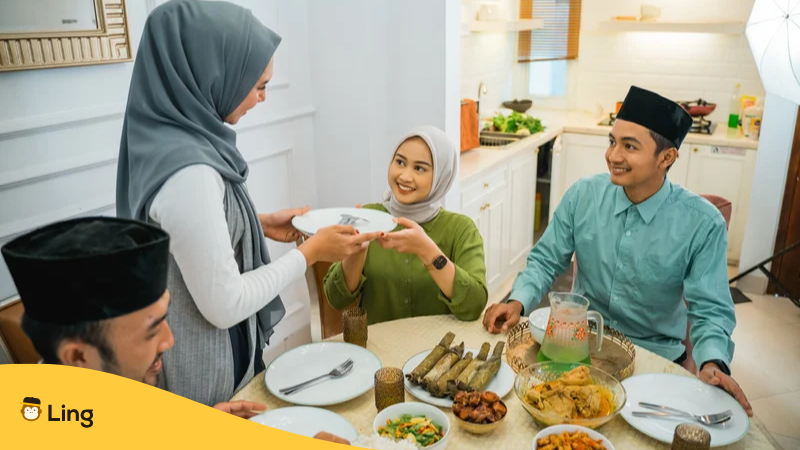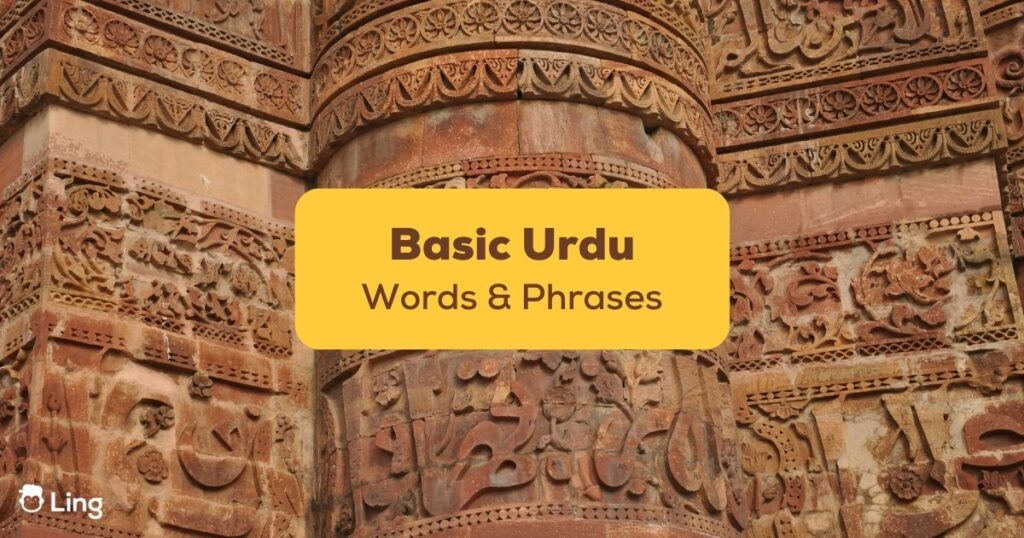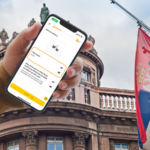Did you know that Urdu is one of the two official languages of Pakistan? It is widely spoken throughout the country! In addition, this beautiful language is also spoken in parts of India and by many people in the United Kingdom and the United States.
If you plan a long wished visit to Pakistan, learning some basic words and phrases in Urdu can greatly enhance your experience and help you communicate more effectively with locals. Additionally, while traveling around the country, you will notice that many street signs or menus may be in Urdu, so a basic understanding of words in the language can make navigating the country much easier.
It is also a great way to show respect for the culture and demonstrate a willingness to learn and engage with the local community. Don’t rely on English alone! Are you ready to learn Urdu as a new language experience? I bring you the most common words and phrases in Urdu that Ling believes you should learn before traveling to an Urdu-speaking location.
Let’s start!

What Are The Most Basic Urdu Words And Phrases?
As in many languages, English words are used while speaking Urdu as well. Three common such words are hello, okay, and bye. To help you familiarize yourself with several other common Urdu terms, here is a simplified list to start with.
1. Hello — ہیلو (Hello)
2. Yes — جی ہاں ( Ji Haan)
3. No — نہیں (Nahin)
4. Please — برائے مہربانی (Barae Meharbani)
5. Thanks — شکریہ (shukriya)
6. Goodbye — خدا حافظ (Khuda hafiz)
7. Good morning — صبح بخیر (Subha Ba Khair or Assalam O Alaikum)
8. Good afternoon — دوپہربخیر (Do Pehar Ba Khair or Assalam O Alaikum)
9. Good evening — شام بخیر (Shaam Ba Khair or Assalam O Alaikum)
10. Good night! — شب بخیر (Shab Bakhair!)
11. Congratulations — مبارک ہو (mubarak ho)
12. My name is ……. — میرا نام ہے ……. (Mera Naam Hai…..)
13. Nice to meet you — آپ سے مل کر خوشی ہوئی (Aap se Mil Ke Khushi Huwi)

Other Urdu Vocabulary Used In Daily Conversations
In the Urdu language, respect is given to people by referring to them as aap. This is often the norm. Sometimes, people may refer to their peer or someone younger by saying “tum,” but as Urdu is a very sweet-spoken and gentle language, most people always use aap in daily conversations.
Don’t know where to start learning Urdu? First, try to contact local native speakers. It is best practice to also use the best means or tools for every day. Why not try Ling first? Download the Ling app from the App Store and Google Play.
Below are some examples that you can use to practice with your friend:
| English | Pronunciation | Urdu Phrases |
|---|---|---|
| What are you doing? | aap kya kar rahe hai | آپ کيا کررہے ہو؟ |
| What is your name? | Aap Ka naam Kya Hai | آپ کا نام کیا ہے؟ |
| See you later | phir milain-gai | پھر مليں گے |
| How much does this cost? | Is Ki Qeemat Kia Hai | اس کی قیمت کیا ہے؟ |
| Can you help me, please? | Kya Aap Meri Madad Kar sakte hain | کیا آپ میری مدد کر سکتے ہیں؟ |
| I am trying to learn Urdu (Male) | Main Urdu Seekh Raha Hoon | میں اردو سیکھنے کی کوشش کر رہا ہوں (مرد) |
| Excuse me (to get information) | Maaf Kee ji ye | معاف کیجئے (معلومات حاصل کرنے کے لیے) |
| Take care of yourself | apna khayal rakhna | اپنا خيال رکھنا |
| Do you speak English? | kya aap angrezi bolte hain? | كيا آپ انگريزی بولتے ہیں؟ |
| Where are you from? | aap kahan sai hain | آپ کہاں سے ہیں؟ |
| How old are you? | aap ki umr kya hai? | آپ کی عمر کيا ہے؟ |
| What are you doing? | aap kya kar rahe hai | آپ کيا کررہے ہو؟ |
| What is your name? | Aap Ka naam Kya Hai | آپ کا نام کیا ہے؟ |
| See you later | phir milain-gai | پھر مليں گے |
| Nice to meet you | Aap se Mil Ke Khushi Hui | آپ سے مل کر خوشی ہوئی |
| Do you like it? | Kya Yeh Aap Ko Pasand Aya? | کیا یہ آپ کو پَسند آیا؟ |
| I really like it! | Mujhe Yeh Bahut Pasand Aya! | !یہ مجھےبہت پَسند آیا |
How To Communicate In Urdu While Doing Shopping?
To immerse yourself in the daily life and culture of the Urdu-speaking people, it is suggested to try to go shopping to experience the hustle and bustle of the whole ordeal! If you are not a local, the sellers may try to sell items at a very high price or may convince you to purchase items that are absolutely worthless to your needs. Here is a list of shopping vocabulary in Urdu that can help you to avoid such situations.
| English | Pronunciation | Urdu Phrases |
|---|---|---|
| How Much is this? | Ye Kitne ka Hai | یہ کتنا ہے |
| It is Expensive | Mehanga Hai | اس کی توسیع |
| Please reduce the price a bit | Kuch Kam Karain | برائے مہربانی قیمت کو تھوڑا کم کریں۔ |
| I will give you 100 Rupees | Main 100 rupees doonga | میں تمہیں 100 روپے دوں گا۔ |
| No | Nahin | نہیں |
| Please | Barae Meharbani | برائے مہربانی |
| Thanks | shukriya | شکریہ |
| Sorry | Maaf Kee ji ye | معاف کیجئے |
What Are The Urdu Words That Will Help You Survive In Restaurants
Though the eccentric cuisine of Urdu-speaking people can be a dream come true for many, others may have specific dietary needs and tastes. It is important to learn some essential phrases to order what you want. Do not hesitate to speak about your wishes at a restaurant! Simply follow the phrases below:
| English | Pronunciation | Urdu Phrases |
|---|---|---|
| What is available to eat? | Khane Main Kia Hai | کھانے میں کیا ہے۔ |
| I’m hungry/ thirsty. | Mujhe Bhuk/Piyas Lagrahi Hai | مجھے بھوک/پیاس لَگ رہی ہے |
| What is less spicy? | Kam Masale wala Kia Hai | کم مسالہ دار کیا ہے۔ |
| I am Vegetarian | Main Subzi khor hon | میں سبزی خور ہوں۔ |
| Please bring the bill | Bill La Dain | براہ کرم بل لائیں۔ |
| Food was great | Khana Bohat Achha Tha | کھانا بہت اچھا تھا۔ |
| I didn’t enjoy the food | Khane Main Maza Naheen Aaya | مجھے کھانے سے لطف نہیں آیا۔ |
| Is there anything else? | Kuch Owr Hai | کچھ اور ہے |
What Are The Name Of The Days In Urdu?
Booking appointments, transportation, interviews, setting deadlines, and ensuring that laundry arrives on time will require you to learn the name of the days in Urdu.

It may require a bit of diligence to master this list early on in your language-learning process. But it will be worth it for you not to miss an appointment or commitment, which is highly valued among Urdu-speaking people.
| English | Pronunciation | Urdu Phrases |
|---|---|---|
| Monday | Peer | پیر |
| Tuesday | Mangal | منگل |
| Wednesday | Budh | بدھ |
| Thursday | Juma Raat | جمعرات |
| Friday | Juma | جمعہ |
| Saturday | Hafta | ہفتہ |
| Sunday | Itwar | اتوار۔ |
| Today | Aaj | آج |
| Yesterday | Kal | کل |
| Tomorrow | Kal | کل |
| Morning | Subha | صبح۔ |
| Evening | Shaam | شام |
| Afternoon | Do Pehar | دوپہر |
| Night | Raat | رات |
| What is the day today? | Aaj Kia Din Hai | آج کا دن کیا ہے۔ |
| What day will you come? | Tum kis Din Aao Ge | تم کس دن آؤ گے |
Vocabulary About Family In Urdu
Pakistanis are renowned for being family-oriented individuals. Members of the family are deeply committed to each other. The Urdu language is influenced highly by the Muslim religion. Therefore, several terms related to the family also descend from there. Perfect examples are Abbu for father and Ammi for mother. Not all Urdu-speaking families are Muslims, but this is useful to know. So, as a beginner, here are a few basic Urdu words related to family that you must learn:
| English Words | Pronunciation | Urdu |
|---|---|---|
| Father | Baap | باپ |
| Mother | Maa | ماں |
| Brother | Bhai | بھائی |
| Sister | Behan | بہن |
| Daughter | Beti | بیٹی |
| Son | Beta | بیٹا |
| Partner | Saathi | ساتھی |
| Siblings | Behan bhai | بہن بھائی |
| Parents | Waldain | والدین |
| Children | Bachay | بچے |
| Child | Bacha | بچہ |
| Stepmother | Soteli maa | سوتیلی ماں |
| Stepfather | Sotela baap | سوتیلا باپ |
| Stepsister | Soteli behan | سوتیلی بہن |
| Stepbrother | Sotela bhai | سوتیلا بھائی |
| Step son | Sotela beta | سوتیلا بیٹا |
| Step daughter | Soteli beti | سوتیلی بیٹی |
| Daughter-in-law | Bahu | بہو |
| Son-in-law | Damad | داماد |
| Brother in law | Sala Jaith Dewar Behnoi | سالہ (Wife’s brother) جیٹھ (Husband’s elder brother) دیور (Husband’s younger brother) بہنوئی (Sister’s husband) |
| Sister in law | Saali Nand | سالی (Wife’s sister) نند (Husband’s sister) |
| Mother in law | Saas | ساس |
| Father in law | Sasur | سسر |
| Wife | Biwi | بیوی |
| Husband | Shauhar | شوہر |
| Elder brother | Bara bhai | بڑا بھائی |
| Younger brother | Chauta bhai | چھوٹا بھائی |
Basic Words In Urdu Related To Time
This list below will support your sentences related to the days of the week and times of the day. A tricky but perhaps easy one to remember would be “kal” which means both yesterday and tomorrow! Here are some common and basic Urdu words that are associated with time.
| English Translation | Pronunciation | Urdu |
|---|---|---|
| Today | Aaj | آج |
| Yesterday | Kal (for past) | کل |
| Tomorrow | Kal (for future) | کل |
| Now | Abhi | ابھی |
| Time | Waqt | وقت |
Master Yourself In The Urdu Language With Ling
I hope the content of this page was helpful to you and that you have learned some Urdu phrases, expressions, and words for your travel. Make sure to remember them so that you can use them in your daily conversations.
Learning a new language from Ling is like playing a game. It is simple and effective. With the support of language research, Ling can help you achieve fluency in record time. Here are the benefits of using the Ling app to learn Urdu or any other language:
- Fun mini-games and quizzes can help you quickly master a new language.
- Practice hundreds of conversations anytime, anywhere. Discuss everyday topics with our chatbot.
- Master the language with a lot of instructions and grammatical hints.
Ling aims to make language learning as simple, fun, and easy to understand as possible. Please visit Ling‘s FAQ page if you have any questions.






















4 Responses
Mujhe urdu or 100 word or chahiye only one urdu and Hindi , English
Thank you for expressing interest in Urdu. We are proud to be one of the few providers of language learning for language learners wanting to learn a South Asian language, and we even offer you to learn any of our 60+ languages in your mother tongue. To learn more about our subscription plans, you can click here and the languages that we support can be found here.
Please help me more in learning Urdu in details and most formal way.. shukriyaa
Thank you for expressing interest in Urdu. We are proud to be one of the few providers of language learning for language learners wanting to learn a South Asian language, and we even offer you to learn any of our 60+ languages in your mother tongue. To learn more about our subscription plans, you can click here and the languages that we support can be found here.